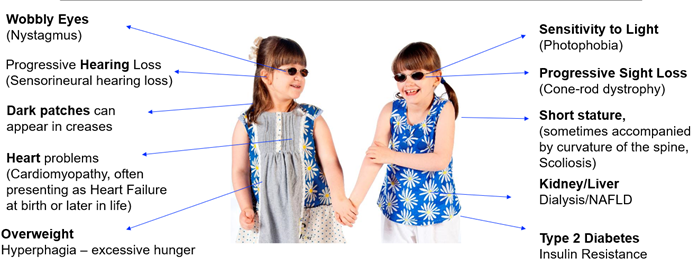Alström Syndrome is an ultra-rare, recessively inherited, genetic condition, which means that both parents will carry the gene although probably be unaffected themselves.
inherited, genetic condition, which means that both parents will carry the gene although probably be unaffected themselves.
ASUK know of around 90 individuals who are diagnosed with Alström Syndrome in the UK, this figure could be higher due to delayed diagnosis and the rarity of the condition, many may still remain undiagnosed.
Alström Syndrome is characterised principally by:
- Retinal Degeneration (inherited progressive eye disease)
- Nystagmus (wobbly eyes)
- Photophobia (sensitivity to light)
- Sensorineural Hearing Loss (disorders of the cochlear part of the ear)
- Obesity and Insulin Resistance
Additional Feature may Include:
- Renal and Hepatic Dysfunction (affecting the liver and kidneys)
- Type 2 Diabetes Mellitus
- Hypertriglyceridemia (elevation of fatty substances in the blood)
- Cardiomyopathy (poor cardiac function, where the heart muscle is weakened and enlarged)
- Bladder and Bowel problems
It is important to remember, AS symptoms may develop at different stages and not everyone is affected by all of the symptoms. Even amongst siblings the symptoms can vary.

